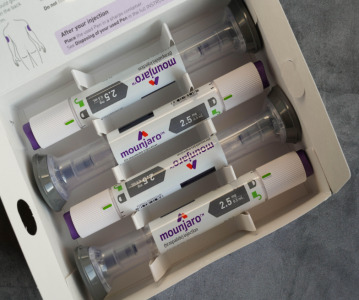FDA Grants Regular Approval for Crizotinib

On 20 November 2013, FDA granted regular approval for crizotinib (Xalkori, Pfizer, Inc.) capsules for the treatment of patients with metastatic non-small cell lung cancer (NSCLC) whose tumours are anaplastic lymphoma kinase (ALK)-positive as detected by an FDA-approved test.
The approval was based on demonstration of superior progression-free survival (PFS) and overall response rate (ORR) for crizotinib-treated patients compared to chemotherapy in patients with ALK-positive NSCLC with disease progression after platinum-based doublet chemotherapy.
An open-label, active-controlled, multinational, randomized trial enrolled 347 patients with ALK-positive, metastatic NSCLC. Patients were required to have progressed following platinum-based chemotherapy and to have ALK expression in tumour specimens detected by fluorescence in situ hybridization on central laboratory testing. Patients were randomised to receive either crizotinib 250 mg orally twice daily (n=173) or chemotherapy (n=174). Patients randomised to chemotherapy received pemetrexed (58%) or docetaxel (42%) if they had received prior pemetrexed. Approximately 64% of patients on the chemotherapy arm subsequently received crizotinib.
The trial demonstrated significantly prolonged progression-free survival (PFS) for crizotinib treatment compared with chemotherapy [HR=0.49, (95% CI: 0.37, 0.64), p<0.0001]. Median PFS was 7.7 and 3.0 months on the crizotinib and chemotherapy arms, respectively. The ORR was significantly higher for the crizotinib arm (65% vs. 20%) with median response durations of 7.4 and 5.6 months in the crizotinib and chemotherapy arms, respectively. No difference in overall survival was noted between the two arms [HR= 1.02 (95% CI: 0.68, 1.54)] in a planned interim analysis.
Common adverse reactions in clinical trials with crizotinib, occurring at an incidence of 25% or higher, included visual disorders, nausea, diarrhea, vomiting, constipation, edema, elevated transaminases and fatigue.
Safety data from this trial was evaluated in 172 crizotinib-treated patients. Serious adverse events were reported in 37% of crizotinib-treated patients. The most common serious adverse reactions of crizotinib were pneumonia, pulmonary embolism, dyspnea, and interstitial lung disease. Fatal adverse reactions occurred in nine crizotinib-treated patients and included acute respiratory distress syndrome, arrhythmia, dyspnea, pneumonia, pneumonitis, pulmonary embolism, interstitial lung disease, respiratory failure and sepsis.
Crizotinib was previously granted accelerated approval in August 2011 based on durable, objective response rates (ORR) of 50% and 61% in two single-arm, open-label studies.
Related News
-
News The next 15 drugs up for negotiation with Medicare include several blockbusters
By now, everyone is quite familiar with the drug price negotiations taking place between drug companies and the Centres for Medicare & Medicaid Services (CMS) in the USA as part of measures being taken to reduce the cost of drugs for patients, to make ... -
News PSCI Welcomes Delpharm, Samsung Biologics, and Suven as First Supplier Partners
The pharmaceutical industry continues to evolve with an increasing focus on responsible sourcing, sustainability, and collaboration across the supply chain. Under a new model to recognise suppliers within the pharmaceutical and healthcare industry that... -
News Drug prices agreed upon as part of the US Inflation Reduction Act
The Inflation Reduction Act brought into constitution by the Biden administation in 2022, which proposed a drug price negotiation between the government and pharmaceutical companies, has reached it's first agreement. -
News Eisai Alzheimer’s drug authorised in UK but still faces obstacles
In partnership with BioArctic AB, pharmaceutical company Eisai has been granted Marketing Authorisation by the Medicines and Healthcare products Regulatory Agency (MHRA) for its Alzheimer’s disease drug product Leqembi. -
News Eli Lilly's weight loss drugs removed from the FDA's shortage list
The US FDA have recently updated their drug shortage list. The recently released list shows that all dosage forms of Eli Lilly's weight-loss drug Zepbound and their diabetes drug Mounjaro are now available. -
News Global advancements in the diagnosis and treatment of rare diseases: Rare Disease Day 2024
Rare Diseases Day is celebrated on the 29th February 2024 and represents the plight of rare disease patients to gain diagnosis and access to suitable treatment. -
News Pharmaceutical industry supports COP28 health stance in joint statement
As COP28 takes place over this week in Dubai, UAE, several bodies in the pharmaceutical and health industries have come together to announce support of key movements in sustainability in the sector, and to recognise sustainability as a health issue.&nb... -
News Biden backs Cold-War measures to shore-up medical supply chains
In a recent strategy to combat rising inflation and the cost of living crisis, President Joe Biden has invoked a Cold War-era act to increase investment in a selection of medicines and supplies.
Recently Visited
Position your company at the heart of the global Pharma industry with a CPHI Online membership
-
Your products and solutions visible to thousands of visitors within the largest Pharma marketplace
-
Generate high-quality, engaged leads for your business, all year round
-
Promote your business as the industry’s thought-leader by hosting your reports, brochures and videos within your profile
-
Your company’s profile boosted at all participating CPHI events
-
An easy-to-use platform with a detailed dashboard showing your leads and performance



.png)



